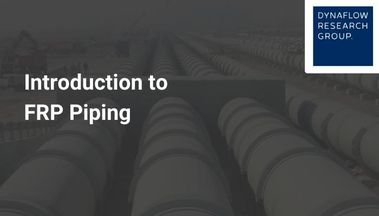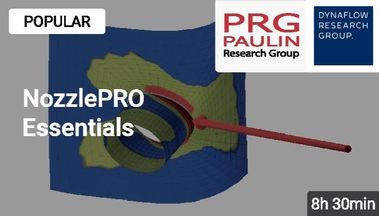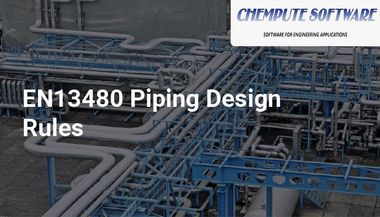Introduction to Pipe Stress Engineering: Fundamentals 1
Self-Paced Course
6 modules
Stressman Engineering
SPC501
Format:
On-demand
€140 For Teams
Get a 20% discount on all courses for you and your team.
Free Course Preview
Help yourself with your purchasing decision. Watch free content now.
"Ideal for Lead Piping Engineers and Junior Pipe Stress Engineers that want to make the right decisions."
Learn from home
100% online training
Video Lectures by Experts
watch multiple times
Start immediately
1-year unlimited access
PDH Hours qualified course
Read more here
About the course
Self-paced
6 modules
7.5 hours
English
1-yr access
SPC501
This course by Stressman Engineering gives you a strong base and understanding of Pipe Stress Engineering. It will enhance your discussions with colleagues, vendors and clients and refuels you with inspiration and knowledge. In a set of online modules, you learn to understand the design philosophy of pipe stress. With practical examples, the instructors will provide you with a prominent course and give you a complete overview.
The course provides a broad context of the concepts, insights into possibilities for optimization and cost reduction, and a strong base for deeper discussions with colleagues, vendors and clients.
This Fundamentals course contains 7 online modules based on video content. You receive 1-year unlimited access to the course and the discussions forum. This allows you to perform modules again when you need to refresh your knowledge for your work projects.
Meet your instructor
Sondre Luca Helgesen
CEO, owner, and Senior Analyst at Stressman Engineering
Pipe Stress, Piping Design, FEA, Ansys
Juan Manuel Mendez Franco
COO at Stressman Engineering
President of The PSI Association
Pipe Stress, Piping Design, FEA, Ansys
Program & Details
Welcome to the course
Your instructors
How to use this course
Personal Certificate requirements
Definition
What is a Piping Stress Analysis?
Why do a stress analysis?
A sample of the first module is available for free, so you can learn more about the teaching style and understand if the course fits your needs.
Force & moment
Material Stress
Most common types of stress - Part A
Most common types of stress - Part B
Piping loads classification: Primary loads
Piping loads classification: Secondary & Occasional
Piping loads classification: Primary vs. Secondary
Piping loads classification: Dynamic loads
Piping loads classification: Summary and further discussion
Types of loads
Piping vs. Pipelines - Part A
Piping vs. Pipelines - Part B
Piping vs. Pipelines - Part C
Onshore vs. Offshore
Piping stress analysis scenarios - Part A
Piping stress analysis scenarios - Part B
Piping stress analysis scenarios - Part C
Pipeline stress analysis scenarios - Part A
Pipeline stress analysis scenarios - Part B
Static vs. Dynamic: Stress analysis
Codes & Standards for Pipe Stress
ASME codes on the spot
European codes on the spot
International standards
ASD vs. LFRD
Onshore / offshore: piping codes
Other international & local: piping codes
Recommended document
Introduction
Equipment codes in process piping systems
Overloaded nozzles
Overloaded nozzles: further discussion
Centrifugal pumps
Positive displacement pumps
Centrifugal Compressors - Part A
Centrifugal Compressors - Part B
Reciprocating Compressors
Steam turbines
Shell & tube heat exchangers
Plate: heat exchangers
Air-cooled: heat exchangers
Remaining equipments
ASME vessels & columns - Part A
ASME vessels & columns - Part B
PD5500 vessels & columns
Onshore pipelines: equipment & components
Offshore equipment: codes
Plastic piping: codes
Introduction & summary
Stress critically selection: Definition
Types of stress analysis: Visual analysis
Types of stress analysis: Manual analysis
Types of stress analysis: Comparison
Computational analysis: FEA type
Computational analysis: Static vs. Dynamic - Part A
Computational analysis: Static vs. Dynamic - Part B
Selection methods
Stress Critically: Selection Examples
Wall thickness calculation per ASME B31.3
Weld Joint Quality Factor, E
Weld Joint Strength Reduction Factor, W
Material Coefficient Factor, Y
Considering Corrosion Allowance
Wall thickness calculation per ASME B31.8
Examples under B31.3 Chapter II, based on OD
Examples under B31.3 Chapter II, based on ID
Examples under B31.3 Chapter IX, high pressure piping (OD)
Examples under B31.3 Chapter IX, high pressure piping (ID)
Examples under B31.8 Chapter VIII
Congratulations
Course evaluation survey
Your Personal Certificate
Rate this course
Related resources & follow up
Results
After the courses Fundamentals I & II course you have a complete overview of pipe stress process.
After this course, you...
Understand the different loads relevant for pipe stress and their combinations,
Know the different codes & standards related to pipes and connected equipments, and their context,
Understand the differences for pipe stress analyses of different types of systems,
Know how to perform a Piping Stress Criticality Selection and perform pipe wall thickness calculations.
Who should attend this course
Piping Design Engineers & Piping Design Leads which are required to understand the basics of pipe stress engineering to make the right decisions,
Junior Pipe Stress Engineers with 0-3yr experience,
Mechanical, Process and Structural engineers that require a broad perspective on piping system design.
Prerequisites:
Technical background
Level: Fundamentals
Access to the course.
After your purchase is confirmed you receive an account to the EngineeringTrainer online learning portal, where you find the course in your dashboard. After opening the course you will be guided step-by-step through the different modules. You receive 1-year unlimited access to the course. This allows you to perform modules again if this is beneficial for your work projects.
Learn by doing.
The course is mainly based on video lectures. Videos can be viewed as many times as desired. The video lectures help you to grasp the important technical concepts and related actions and considerations are discussed in detail.
This course is self-paced and is not subject to specific dates. The course contains 6 modules with a total of 7.5 hours of content which can be performed at your own pace. A Personal Certificate will be provided to you if you finish the course within the first month after purchase. This incentive will motivate you to perform the course quickly thereby improving your learning curve.
You receive 1-year unlimited access to all 7 modules. This allows you to perform modules again whenever you want to refresh knowledge for your daily work projects.
Participants of this course receive a personal digital certificate if they meet the following requirements:
complete each module of the course,
filling in the Course Evaluation Survey.
Example Certificate:
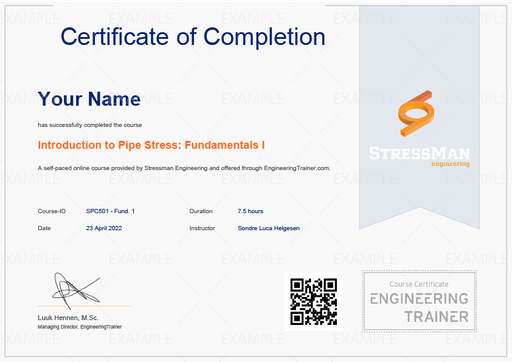
FAQ
Video lectures
The majority of training material are videos. These are not available for download, but can be accessed directly with your account on the portal. You receive 1-year unlimited access to the course. This allows you to watch content again if this is beneficial for your work projects.
We encourage participants to submit feedback and questions. These form the basis for new, future videos that will be added to the online course, but they will not be answered to the student directly.
Participants receive 1-year unlimited access to the course including new videos that are added during this year. Participants receive an email notification upon addition of new course videos.
No software is required for participants of this course.
Yes, this course qualifies for PDH hours as per the NCEES CPC Guidelines.
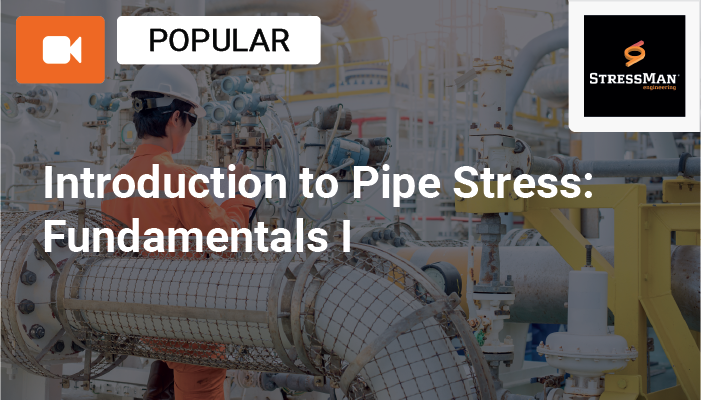
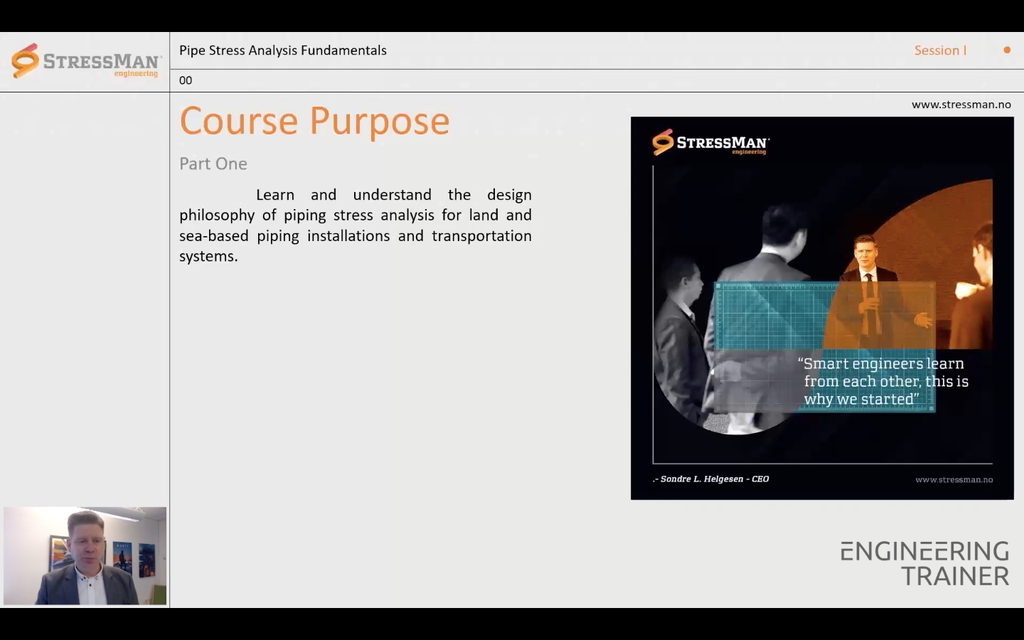
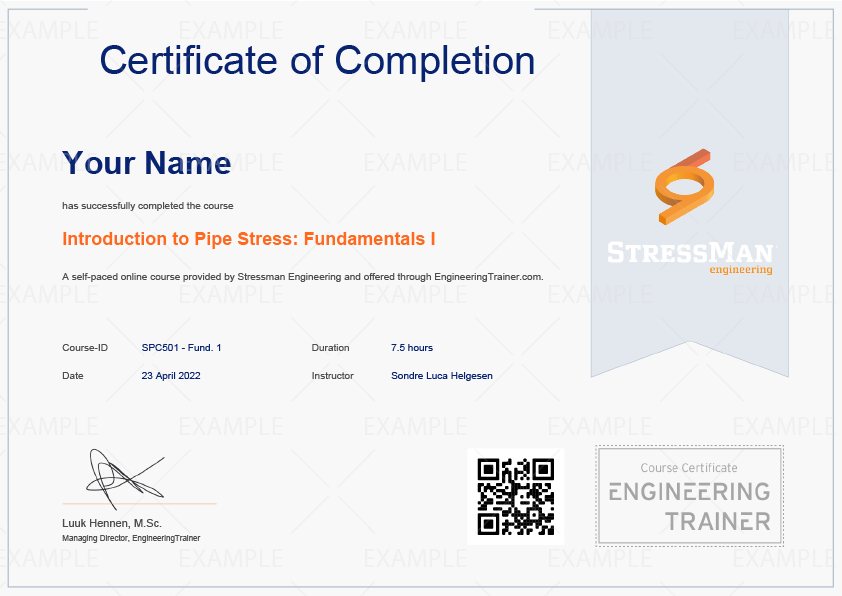



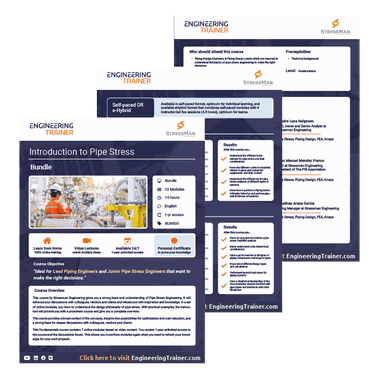

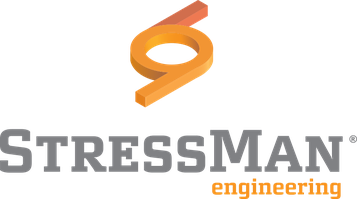


![[SPC502] Introduction to Pipe Stress: Fundamentals II](/web/image/219442/SPC502.png?access_token=d97426eb-0ca8-43d4-8e5b-a55cc12f5bb7)
